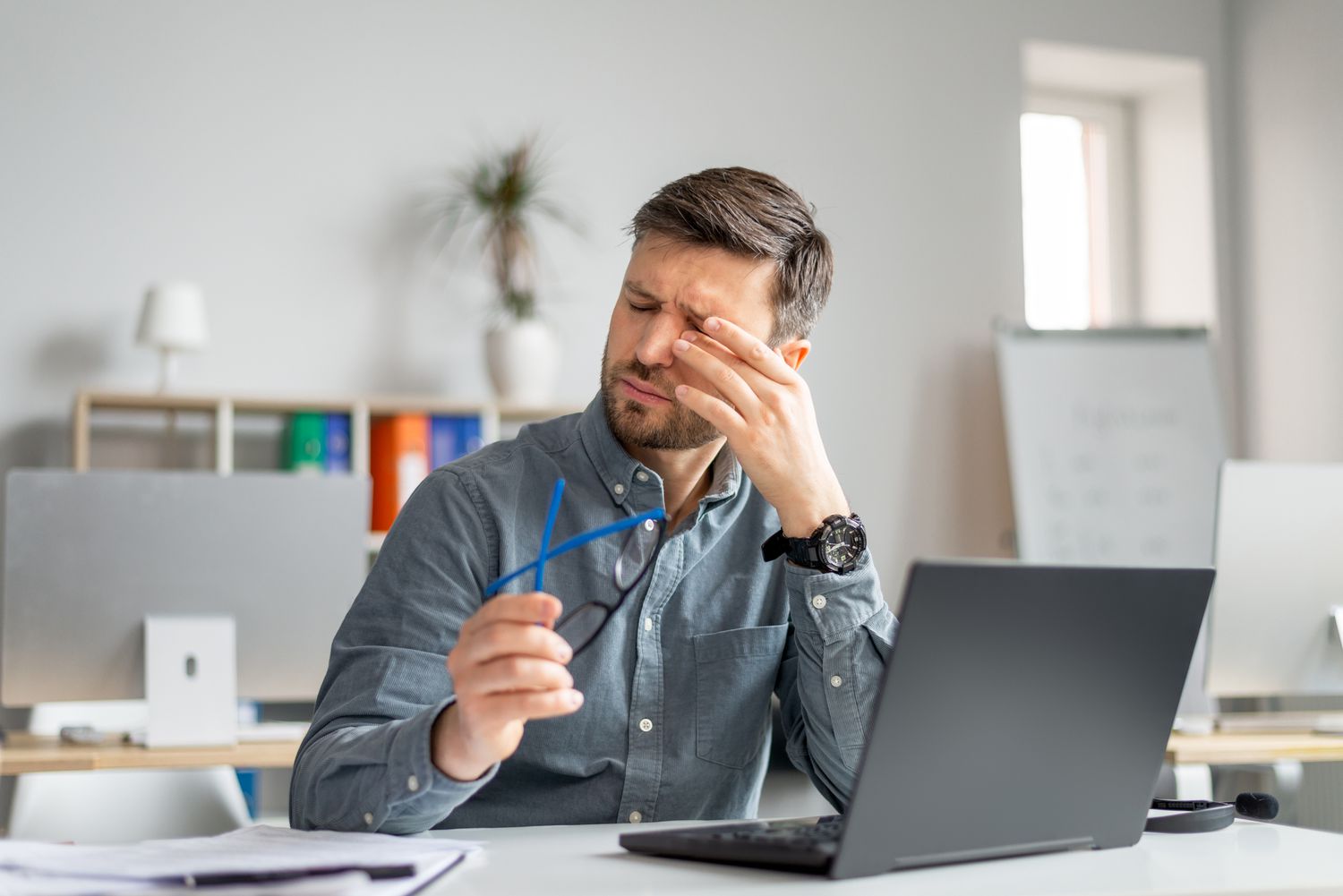Is Rubbing Your Eyes Excessively Harmful for Your Eye Health?

Take note if you often find yourself rubbing your eyes throughout the day.
This habit can easily develop, especially when you're waking up in the morning or spending a lot of time in front of a computer. According to Jill Beyer, OD, a clinical professor of ophthalmology at Stanford University School of Medicine, this is a common habit. When you rub your eyes, it might seem satisfying, as it stimulates tears and lubricates the eye. It can also momentarily numb the feeling in the eyes, Beyer explains.
Nevertheless, eye health specialists do not encourage rubbing your eyes, especially if done frequently, as it can be harmful. This practice can exert unwarranted pressure on the eyes and, in some cases, can lead to keratoconus, a severe condition, explains Masako Chen, MD, a professor of ophthalmology and director of the Comprehensive Eye Clinic at Mount Sinai's New York Eye and Ear Infirmary.
Chen insists that it would be best to avoid eye rubbing when your eyes get itchy and use artificial tears instead, which could, in turn, reduce many doctor visits.
This piece will illuminate why people are inclined to rub their eyes, its potential risk, and the right time to seek help from a healthcare professional.
While anyone may feel the urge to rub their eyes, certain conditions may trigger this behavior more often. Allergies, for instance, can significantly contribute to excessive eye-rubbing. Experiencing allergic conjunctivitis or eye allergies often triggers itchy, burning eyes, and clear discharge, making individuals more prone to eye rubbing.
Also, disorders like blepharitis, an inflammation of the eyelids, or viral conjunctivitis, known as pink eye, may increase the urge to rub eyes, according to both Beyer and Chen. Dry eyes are another common reason for eye-rubbing.
Clark Chang, OD, the director of global medical affairs with Glaukos and director of specialty lenses with Wills Eye Hospital, points out that our modern lifestyles are contributing factors as we spend large amounts of time using our smartphones and computers, leading to less blinking and faster tear film evaporation.
Eye fatigue or eye strain, commonly caused by excessive screen time, are also reasons to rub eyes, adds Beyer. However, Chang suggests that this simply could be a habit for some, regardless of these conditions.
Generally, the harm caused by eye rubbing is greater than the temporary relief it provides. For individuals with allergies, eye rubbing can trigger more histamine release, resulting in itchier eyes, explains Beyer.
Beyer further warns that excessive eye rubbing could result in corneal injuries. Chen warns of the potential injuries from accidentally rubbing something foreign into the eye, even if it's just dust.
While not common, rubbing eyes can lead to severe conditions over time. According to Chen, rubbing the eye causes increased eye pressure, which can ultimately deform and thin the cornea, damaging the collagen fibers and proteins in the eye. In certain instances, this can lead to the formation of keratoconus, a serious corneal condition mostly seen in young people, Chang explains. In advanced cases, keratoconus may require surgical intervention or even corneal transplants, adds Chen.
However, Beyer clarifies that keratoconus can develop without eye rubbing, and not everyone who habitually rubs their eyes is at risk. That being said, individuals with keratoconus should avoid rubbing their eyes as it accelerates the condition.
Regardless of whether you have keratoconus or not, it is universally acknowledged by experts that rubbing your eyes is a habit that should be broken.
Beyer advises that it is always best to avoid rubbing your eyes, even though it might be difficult.
If people are rubbing their eyes when they feel dry, they can reach for artificial tears instead, Beyer recommended.
Additionally, if a person notices they’re rubbing their eyes while working at a computer or at other points when they’re experiencing eye fatigue, Beyer recommends the 20-20-20 rule—every 20 minutes, look 20 feet away for 20 seconds.
“We’re all on our computers and our devices all the time, and so almost everyone now has a degree of ocular fatigue or dry eyes, just eye strain in general,” she said. “It might feel good for a moment, but it could make things worse and cause more problems.”
If someone feels like they can’t stop rubbing their eyes, or if they’re experiencing blurry vision, eye sensitivity or irritation, eye redness, pain, or other issues, those are all indicators that they should see an eye doctor, Chen said.
Whether it’s dry eye, allergies, keratoconus, or something else, a healthcare professional can help someone get to the root of the problem.
“If you worry about your eye rubbing and you don’t know what the reason is,” said Chang, “I definitely recommend that you should go to the eye doctor to have that checked out.”




